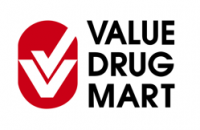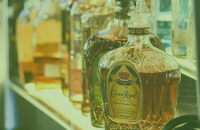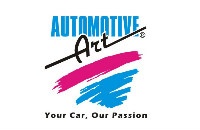Differentiating With Customer Experience: Interview with Passion Vines
Building a business during the recession and coming out on top
Voted Best Liquor Store in South Jersey by the Press of Atlantic City for three consecutive years, Passion Vines is a wine and spirits business that emerged from a clever pub takeover in 2005. Flipping from beer and comfort food to a specialty wine store, the management pulled off a dramatic change in tone with great flair. Passion Vines saw significant success and earned the loyalty of its clients with a warm atmosphere that welcomed experienced wine-lovers and curious newcomers alike, and quickly established itself as a cornerstone of the local retail community.
Shortly after expanding beyond its first location and laying the groundwork for further growth, Passion Vines – along with all of New Jersey and in particular the businesses located on the south shore – hit the difficult years that came as a result of the Hurricane Sandy disaster in 2012 and the wide scale bankruptcy of tourism-powered businesses in Atlantic City. As many mid-sized retailers were closing their doors, Passion Vines persevered in the face of extremely hard circumstances in an already competitive industry. We sat down to talk with them to learn more about the technology strategy they employed to stay profitable and to find out what’s next for them now that the hardest years are over and they’ve survived to tell the tale.
How important to your business has it been to differentiate yourself from other wine and liquor stores?
It’s a clear advantage in the business world if you stand out from your competition, obviously, but our motives weren’t quite so cold and calculated. The things that make us different emerged organically out of our store’s origins as a pub and our philosophies around giving customers good experiences. For example, the tasting bar at our primary location isn’t a gimmick to make us memorable – we genuinely feel like it’s better for a shopper to have the opportunity to try and compare new or different products before making a purchase. Over the years, we’ve seen what people react positively to and we invest in strengthening or enhancing those things.
After the initial success of Passion Vines, you expanded beyond your original location in 2009. What groundwork were you laying at the time and what changes did you have to make as you transitioned to a multi-store business?
We realized early on that the processes and software we were using to manage our sales, inventory and accounting just weren’t going to cut it, so we started shopping around. With an eye specifically on companies with a track record for helping their clients grow their retail locations and manage the back-office workload that comes with that growth, we selected Magstar Total Retail because we were confident it would form the sturdy, scalable foundation we needed. We were expanding and planned to keep on expanding, and that was why we made a significant investment in end-to-end ERP, rather than buy something smaller but workable that we would have to replace again in five years. Our approach is to avoid these repeated costs wherever possible.
What impact did your shift to a multi-location infrastructure have on the customer experience you were able to provide in-store, if any?
For the customer, the benefits of better inventory control and management are invisible but strongly felt. With a more sophisticated system, replenishment and distribution is more timely and more intelligent. It goes beyond simple things like always having what your customers want in stock; for example, we can identify that the communities we serve from store to the next have different tastes and different buying patterns, or that our customers are fond of different wines in one season over another. When we’ve got the data to understand that, we can serve them better without them having to consciously ask for it. It’s the difference between just running a business and managing a business. Plus the advantage of any good piece of retail technology is that it reduces the time your employees spend on mundane tasks and back-office operations, freeing them up to serve your customers more attentively.
What are your next steps going forward?
The next thing we’re looking at is going mobile to be able to process transactions away from a cash register. For example, we often go out to provide wine tasting events for local enthusiasts, and would love the ability to sell a few bottles on the spot with nothing more than the phone in an employee’s pocket. For the most part, we keep our ears and eyes open and pay attention to what customers are asking for and what other people are doing in the industry to manage their businesses better.
About Magstar Total Retail
Magstar Total Retail is an industry-specific ERP solution that has been built on a foundation of 30 years of retail store management best practices. Implemented and supported by our team of analysts, each of which has at least 10 years of experience working with retail store enterprise software, our solution provides the technological backbone of an entire company, balancing the individual needs of each store with the advantages of having unity and consistency across your brand.
RECENT POSTS
 Value Drug Mart ERP Case Study: POS Overhaul Improves Inventory ManagementValue Drug Mart chose Magstar to replace its stores’ [...]
Value Drug Mart ERP Case Study: POS Overhaul Improves Inventory ManagementValue Drug Mart chose Magstar to replace its stores’ [...] At Crown Liquors, Customer Experience Remains a Competitive AdvantageVoted Best Liquor Store in South Jersey by the [...]
At Crown Liquors, Customer Experience Remains a Competitive AdvantageVoted Best Liquor Store in South Jersey by the [...] Interview with Automotive Art Executives on Tackling the Biggest Challenges of Global ExpansionWe spoke with Hugh Blades and Doug Armstrong of [...]
Interview with Automotive Art Executives on Tackling the Biggest Challenges of Global ExpansionWe spoke with Hugh Blades and Doug Armstrong of [...]

